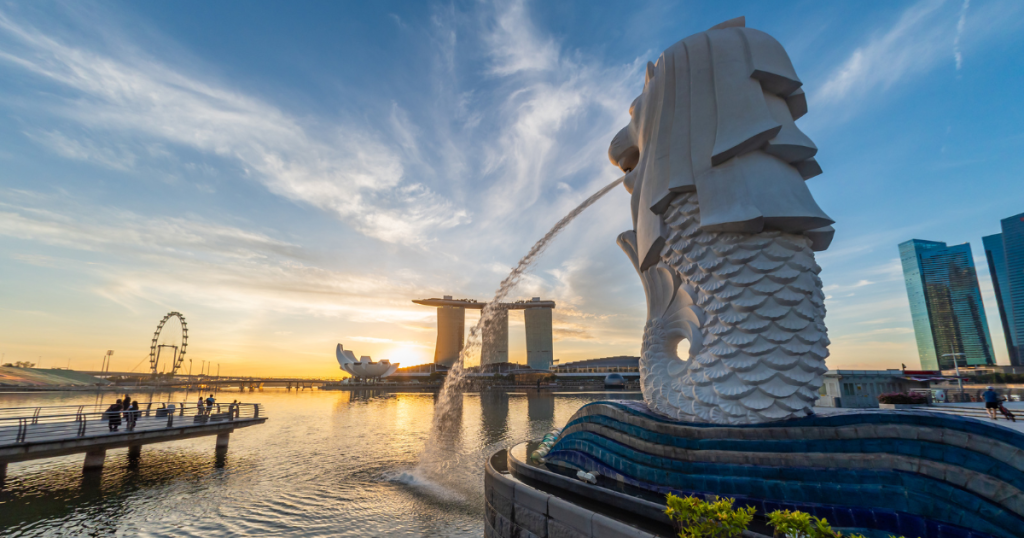Insights from Singapore |
OFW Life in Singapore

By Lorenzo Uy | Date 02-22-2024
SINGAPORE — Lucky Plaza was not meant to be Singapore’s “Little Philippines.”
Construction of this shopping mall began in 1977 when Orchard Road was on the cusp of becoming a shopping mecca.
Orchard Road was just another “leafy street with double-story shophouses” – home to a row of car dealerships – when, in the 1960s, Singapore bet big on tourism to boost its nascent economy.
The government designated Orchard Road as a retail zone, and soon, hotels and shopping malls were rising everywhere.
By the early 1970s, it had become one of Asia’s top shopping and dining destinations.
Around this time, property developer Ng Teng Fong of Far East Organization decided to build another shopping mall to add to his already thriving Far East Shopping Centre: Lucky Plaza.
It’s not clear how and when Lucky Plaza morphed from a favored destination of Singapore’s well-to-do and the region’s jetsetters into a home away from home for Filipinos living in Singapore.
But today, it is undeniably the beating heart of the Philippine diaspora in Singapore.
Its texture and temperament now resemble one of those medium-sized malls in Manila’s Escolta district that has been magically transported to Orchard Road. Most everything in it is Filipino: the food, the shops that mimic the Philippines’ neighborhood sundry stores, the salons, the vibes.
That Filipino-ness is loudest on Sundays when thousands – mostly domestic helpers enjoying their precious days off – are jammed in every nook and cranny of Lucky Plaza.
There and then, a cacophony of Philippine dialects and accents fills the air in a deafening roar of commerce, camaraderie, and a 12-hour relief from a bondage that is almost inescapable.
There and then, you hear the stories of the Filipino migrant worker, and you soon realize that Lucky Plaza – if you listen very closely – is, in fact, the biggest psychotherapist’s chair in Singapore.
There are some 200,000 Filipinos living in Singapore. About 60 percent are skilled workers; the rest are domestic helpers.
Many carry the invisible scars that go with a migrant’s life: from just plain homesickness to a sense of detachment, to a heaviness that goes with perpetual money problems at home, to a full-blown breakdown arising from low-intensity abuse to physical and sexual violence.
Surveys done by the Humanitarian Organisation for Migration Economics (Home) in Singapore in 2015 and 2019 showed that about one in four domestic helpers had “poor mental health.”
They were showing signs of “psychoticism, depression, and interpersonal sensitivity.”
About half were experiencing “high levels of stress,” and one in five felt “social isolation.”
Their self-esteem and sense of self-worth were eroded by the constant scolding, screaming, demeaning put-downs, humiliating taunts, and constant reminders that they were lowly paid and could lose everything at any time. There’s very little they can do about it.
“They begin to feel trapped and demoralized, and in more advanced cases of depression… it is almost always accompanied by suicidal ideation, heightened by a sense of worthlessness and hopelessness,” Home said.
Yet, very few can afford to see a therapist. It costs at least S$300 for a month’s worth of counseling, and there are pricey medications that go with it.
So, they go to Lucky Plaza instead.
In the company of their friends and fellow domestic helpers, they feel like they can finally be seen and heard.
“No one tells us what to do here,” said Carmela, a domestic helper who wishes to be known only by her first name.
Her companion, Mila, who also requests to remain anonymous, added: “No one looks down on us here because we’re all the same. We’re all domestics.”
Here, at Lucky Plaza, the conversations are boisterous, unencumbered on any given Sunday.
Here, gossip and jokes fly thick and fast. So, too, are stories of heartbreak and sadness. The good-for-nothing husband back home who waits like a starving dog each month for the money their wives make out of backbreaking work in Singapore, which they then quickly gamble away or spend on a mistress.
The teenage son was mowed down by a bus as he was parking his motorcycle by the side of the road.
Here, at Lucky Plaza, hearts open up, revealing complex creatures that are broken and made sturdy by life’s adversities and the hope that comes from chasing a dream.
For domestic helpers and many other migrant Filipinos in Singapore, Lucky Plaza is a sturdy shelter from a torrent of misfortune that they are trying to roll back. It is their home away from home.
“Lucky Plaza is a space where Filipino domestic workers unsettle social hierarchies temporarily, as they participate in the politics of visibility and the politics of appearances,” Dr Mina Roces, a history professor at the University of New South Wales, said in a research paper.
“At least for one day each week,” she said, “Lucky Plaza is a place where Singaporeans are the outsiders.”
